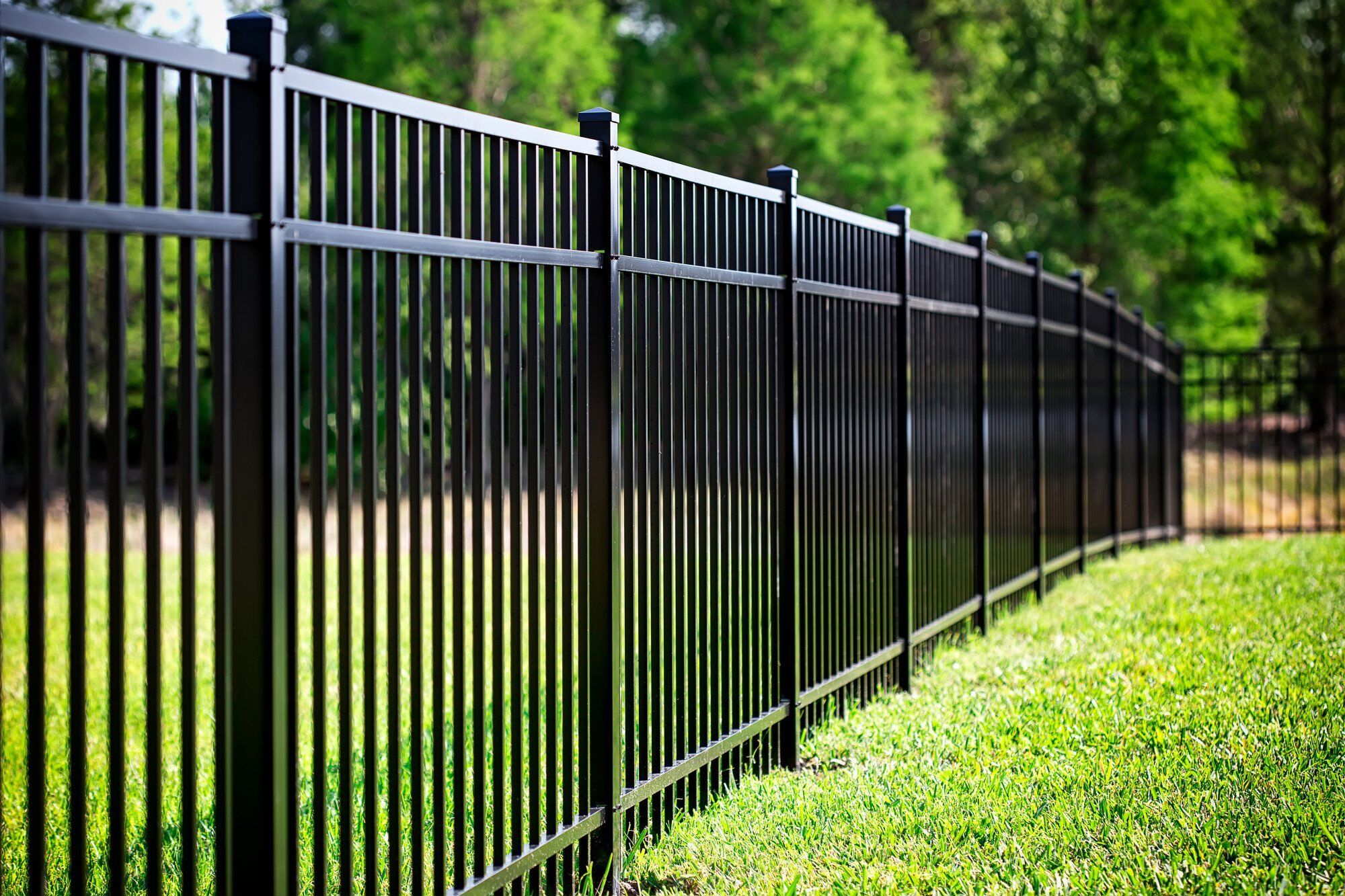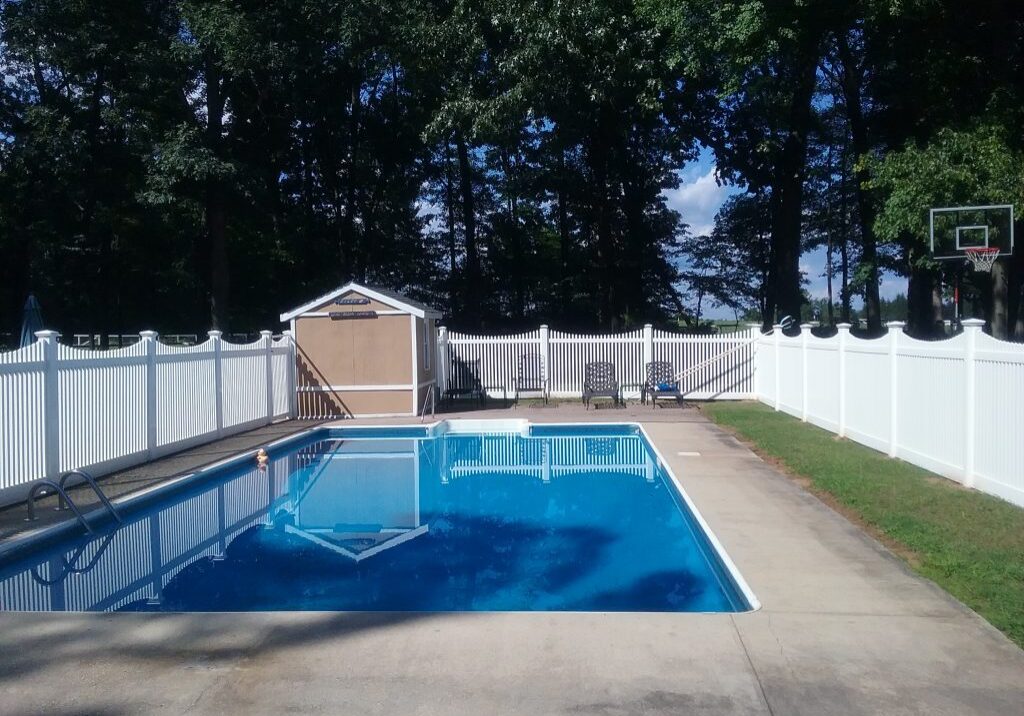All Categories
Featured
If you're thinking about setting up a fence around your property, comprehending the authorization requirements in your location is vital. In this guide, we'll damage down the different licenses you may require to install a fence and just how to ensure your job stays certified with local regulations.
Why Are Allows Essential for Fence Installment? Licenses are needed to make sure that the fencing you construct comply with local building ordinance, zoning laws, and security criteria. These permits are in place to secure your home, the homes around you, and the atmosphere. They make certain that the fence will not block energies, website traffic circulation, or develop hazards for pedestrians. Furthermore, they assist preserve the architectural and visual integrity of your community.
![]()
Kinds Of Permits You May Requirement. Structure Authorization. A structure license is the most usual need for mounting a fence. If your fence goes beyond a certain height (normally around 6 feet), you may need to obtain a building authorization.
Zoning Permit. A zoning license makes certain that your fence complies with these guidelines. Your fence could need to be set back a particular range from sidewalks or building lines.
Homeowners Organization (HOA) Approval. If your home is part of a home owners association, you may require approval before installing a fence. HOAs frequently have rigorous rules pertaining to the kind, design, and materials utilized for fences to maintain an uniform look throughout the neighborhood.
Specialty Permits. In many cases, you may require specialty permits based upon the area of your home or the nature of your fencing. As an example, if your home remains in a flood area, you may need extra permits to guarantee that your fencing does not block drainage or water flow. Likewise, if you plan to construct a fence near an eco protected area, you may need a special license to comply with environmental regulations.
![]()
Energy Easements and Utility Firm Approvals. Some residential or commercial properties have utility easements, which are areas assigned for energy cables, pipes, or lines. Prior to mounting a fence, you need to check if your residential or commercial property has an easement. Building a fence within an easement can hinder utility maintenance or damages underground lines. You might require approval from the energy company or local authorities before waging the setup.
How to Determine Which Permits You Need. Consult Regional Authorities. The very first step in identifying the permits required is to contact your regional structure division or zoning office. They can offer particular information concerning what authorizations are required for your area. Several cities have online resources or sites where you can inspect the demands or even request a license online.
Speak With a Specialist Fence Professional. A local fence specialist is typically aware of the license process and neighborhood guidelines. They can aid you browse the needs and ensure that your task is compliant. Many professionals additionally manage the license application procedure on your behalf, conserving you effort and time.
Testimonial Your Neighborhood's HOA Guidelines. Make sure to evaluate their guidelines prior to applying for any kind of licenses if you live in an area controlled by an HOA. The HOA might require particular designs, materials, or height constraints for fences within the neighborhood. Send your strategies to them for approval prior to continuing.
![]()
Effects of Not Getting an Authorization. Installing a fencing without the called for authorizations can lead to significant consequences. Potential buyers may think twice to acquire a residential property with an unpermitted fence, particularly if it's in offense of zoning legislations.
Final thought. Prior to installing a fencing on your property, make certain you comprehend the local guidelines and get any kind of necessary authorizations. Structure permits, zoning permits, HOA approvals, and specialized permits all play an essential role in ensuring that your fence is safe, lawful, and certified.
Why Are Allows Essential for Fence Installment? Licenses are needed to make sure that the fencing you construct comply with local building ordinance, zoning laws, and security criteria. These permits are in place to secure your home, the homes around you, and the atmosphere. They make certain that the fence will not block energies, website traffic circulation, or develop hazards for pedestrians. Furthermore, they assist preserve the architectural and visual integrity of your community.

Kinds Of Permits You May Requirement. Structure Authorization. A structure license is the most usual need for mounting a fence. If your fence goes beyond a certain height (normally around 6 feet), you may need to obtain a building authorization.
Zoning Permit. A zoning license makes certain that your fence complies with these guidelines. Your fence could need to be set back a particular range from sidewalks or building lines.
Homeowners Organization (HOA) Approval. If your home is part of a home owners association, you may require approval before installing a fence. HOAs frequently have rigorous rules pertaining to the kind, design, and materials utilized for fences to maintain an uniform look throughout the neighborhood.
Specialty Permits. In many cases, you may require specialty permits based upon the area of your home or the nature of your fencing. As an example, if your home remains in a flood area, you may need extra permits to guarantee that your fencing does not block drainage or water flow. Likewise, if you plan to construct a fence near an eco protected area, you may need a special license to comply with environmental regulations.

Energy Easements and Utility Firm Approvals. Some residential or commercial properties have utility easements, which are areas assigned for energy cables, pipes, or lines. Prior to mounting a fence, you need to check if your residential or commercial property has an easement. Building a fence within an easement can hinder utility maintenance or damages underground lines. You might require approval from the energy company or local authorities before waging the setup.
How to Determine Which Permits You Need. Consult Regional Authorities. The very first step in identifying the permits required is to contact your regional structure division or zoning office. They can offer particular information concerning what authorizations are required for your area. Several cities have online resources or sites where you can inspect the demands or even request a license online.
Speak With a Specialist Fence Professional. A local fence specialist is typically aware of the license process and neighborhood guidelines. They can aid you browse the needs and ensure that your task is compliant. Many professionals additionally manage the license application procedure on your behalf, conserving you effort and time.
Testimonial Your Neighborhood's HOA Guidelines. Make sure to evaluate their guidelines prior to applying for any kind of licenses if you live in an area controlled by an HOA. The HOA might require particular designs, materials, or height constraints for fences within the neighborhood. Send your strategies to them for approval prior to continuing.

Effects of Not Getting an Authorization. Installing a fencing without the called for authorizations can lead to significant consequences. Potential buyers may think twice to acquire a residential property with an unpermitted fence, particularly if it's in offense of zoning legislations.
Final thought. Prior to installing a fencing on your property, make certain you comprehend the local guidelines and get any kind of necessary authorizations. Structure permits, zoning permits, HOA approvals, and specialized permits all play an essential role in ensuring that your fence is safe, lawful, and certified.
Latest Posts
Professional Commercial Fencing Services in Idaho
Published Dec 19, 24
1 min read
Lease vs. Buy: Which Mazda Option Is Right for You?
Published Dec 19, 24
2 min read
What Allows Are Needed for Installing a Fence My Location?
Published Dec 19, 24
0 min read